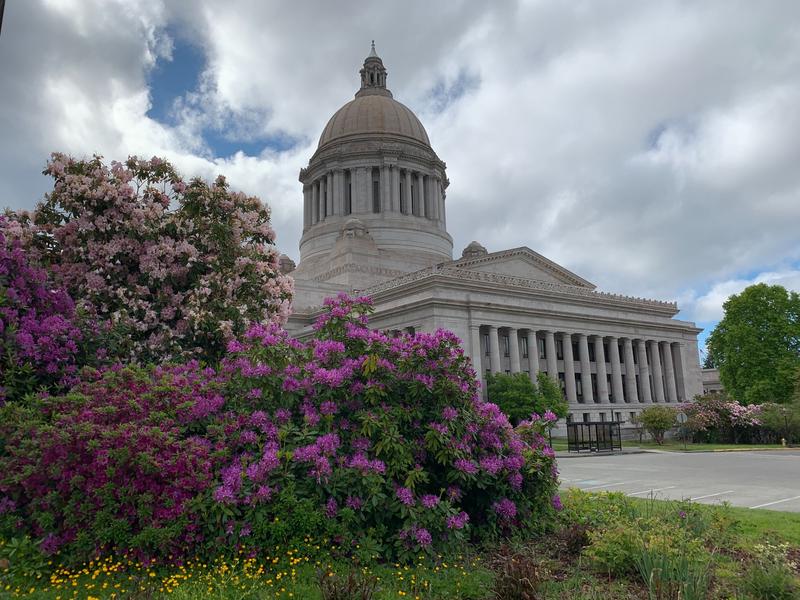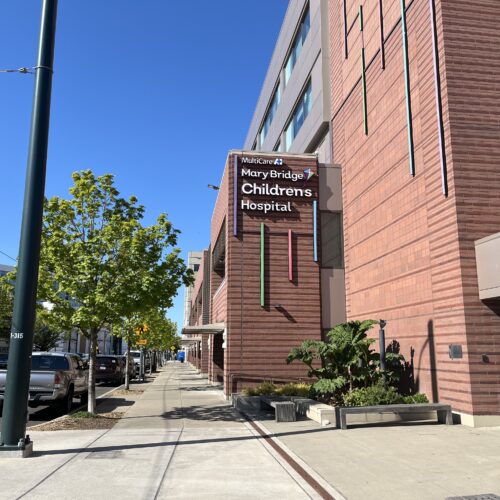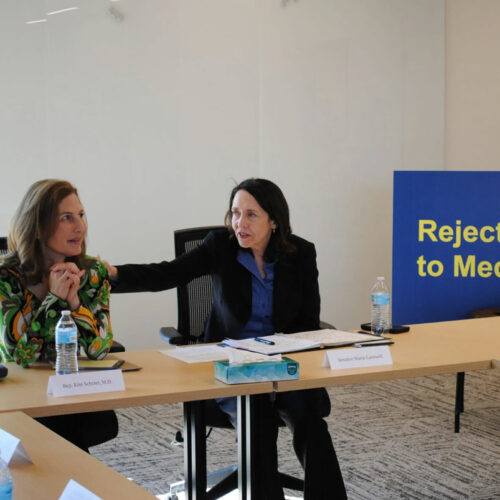
Washington State Labor Council wants better standards for child care industry, paid vacation leave for all
Listen
(Runtime 0:58)
Read
For workers in Washington state, there are a number of bills being brought forward this legislative session that labor leaders hope will make working life better in the state.
The Washington State Labor Council has introduced its legislative agenda for 2025, which focuses on improving child labor laws, bargaining over artificial intelligence in public sector jobs and improving wages and benefits.
“We are really wanting to elevate those kinds of policies that will help address the affordability crisis in this state and help empower workers on the job,” said Joe Kendo, who is the chief of staff for the Washington State Labor Council.
Improving standards for child care workers
A lot of jobs help other people do their jobs, like those working in the child care industry.
The council is supporting a bill, House Bill 1128, which would create a Child Care Workforce Standards Board. According to the council, the board would raise standards across the state in the industry.
“We rely so much on that workforce, yet it is also a tragically under compensated profession,” Kendo said.
According to the U.S. Bureau of Labor Statistics, the annual mean wage for childcare workers in Washington was $40,720 in May 2023. That’s the second-highest mean wage nationally for that workforce.
But Sarah Tucker, who is the communications director for the state labor council, said that falls short of what’s needed to afford housing and other expenses in Washington.
“The BLS statistic about childcare worker wages makes clear that this essential workforce is profoundly underpaid, in Washington and nationally; with this proposed legislation, Washington has the opportunity to once again be a leader in workplace standards for the critical workers who support our state’s flourishing economy,” Tucker wrote in an email.
The National Low Income Housing Coalition estimates a worker in Washington needs to make $70,248 to afford a one-bedroom apartment.
If the bill were to pass, the plan would be for the board to bring together workers, employers, licensed child care facilities and the state to determine competitive wages, benefits and protections for child care workers, according to Kendo.
Other states have created workforce standard bodies to empower workers in decision-making over oversight about their work, such as a council created for fast food workers in California.
The bill is scheduled for a public hearing on Wednesday.
Higher minimum wages and paid vacation time
Another bill the council is supporting, House Bill 1181, would require that starting in 2027, all employers would have to provide paid vacation time to workers.
“ We think that is a real game changer for a lot of working families and something that many previous generations have taken for granted and it’s something that is less and less accessible for more and more working families,” Kendo said.
Employees would accrue paid vacation hours that they could use for any reason after 90 days in their job, which they can roll over into the next year. The legislation wouldn’t require employers to allow any more than 40 hours of unused paid vacation leave to roll over, according to the bill’s text.
The bill would also boost state minimum wages over six years to an eventual $25 an hour. Minimum wage in Washington is currently $16.66 an hour.
According to the Washington State Labor Council, a single adult working full-time in Washington needs $25.60 an hour to afford basic necessities.
Other labor priorities
If it passes, Senate Bill 5041 would give striking workers access to unemployment benefits, with some restrictions about when and for how long. That’s another priority for the labor council, which said more than 30% of Americans have less than $400 in savings, putting them in financial risk when they lose wages.
The council is also hoping to see legislation that would allow public sector workers and their employers to bargain over the use of artificial intelligence on the job. Current law excludes negotiation on the use of technology.
The council is also planning to advance legislation to better regulate work variances for minors. The Washington State Department of Labor and Industries can issue variances to employers to allow for workers under 18 to work where minors are not typically allowed to work, in the context of an on-the-job educational opportunity in conjunction with their school district.
“ Unfortunately, in recent years, there have been some significant safety issues where workers under the age of 18 have been working under some pretty dangerous conditions and there have been some significant injuries,” Kendo said.
Legislation would require the Washington State Department of Labor and Industries to consider an employer’s regulatory history, and any violations on record, before issuing these variances.















